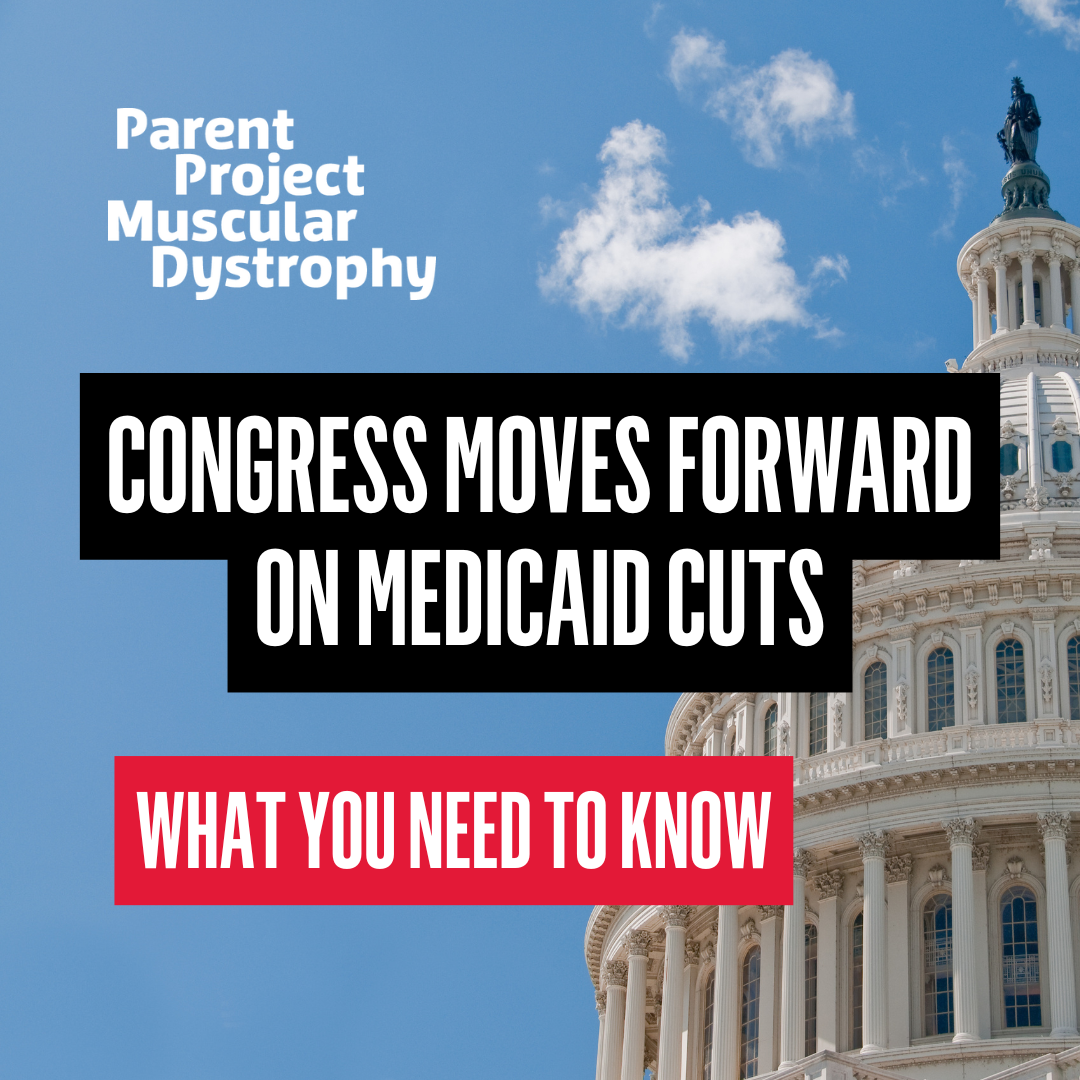
This week, we received concerning news from Washington: Congress has passed a budget resolution that will require significant cuts to Medicaid—up to $880 billion over 10 years. Congress is still determining the exact scope and timeline of these changes, but has taken a step forward to advance them. Below is an update on what this means, what PPMD is doing, and how we move forward together.
Medicaid Is Essential to the Duchenne and Becker Community
For many in the Duchenne and Becker community, Medicaid is far more than a line in a budget. It’s the foundation that helps ensure access to critical care: physical therapy, respiratory support, wheelchairs and assistive devices, specialized medical providers, and therapies. It supports home and community-based services that allow individuals with Duchenne and Becker to live with more independence and with an improved quality of life.
Cuts to this program would have real, immediate consequences for families in our community. These reductions risk limiting access to specialists, increasing wait times for care, and forcing difficult choices between financial security and essential services.
What Congress is Considering
The budget resolution passed this week directs the House Energy and Commerce Committee to identify $880 billion in spending reductions as part of a broader package to implement key policy priorities, including extending tax cuts. According to the independent Congressional Budget Office, even if the Committee were to make cuts in all areas except Medicaid, it would reach only about $500 billion in savings. This suggests that additional reductions, potentially including changes to Medicaid, would be necessary to meet the resolution’s target.
The next step involves the House Majority outlining specific policy changes to the Medicaid program in a piece of legislation known as a reconciliation bill. While people with Duchenne may continue to be eligible for Medicaid under any new proposals, the overall funding changes, amounting to billions of dollars, could significantly affect how resources flow to states and ultimately to healthcare providers delivering services.
What PPMD is Doing
PPMD is committed to advocating for each and every individual living with Duchenne and Becker and their families. This includes ensuring health policies and programs, like Medicaid, remain strong, sustainable, and accessible. We are:
- Reviewing the legislation closely to understand exactly how these changes will affect our community at both the federal and state levels.
- Working with our partners and policy experts to push back against the most harmful provisions and protect access to care.
- Amplifying your voices on Capitol Hill to make sure lawmakers understand what these cuts mean for our community.
What You Can Do
We need your voice now more than ever. We urge you to:
- Share Your Story – Personal experiences are powerful. We are collecting stories to help policymakers see beyond numbers and into the lives their decisions impact. If you or your family rely on Medicaid, tell us about your experience by submitting your story using this form.
- Contact Your Elected Officials – Let them know how important Medicaid is to you. Take action here.
- Attend a Town Hall – Many members of Congress will be home working in their districts in the coming weeks while Congress is in recess. This is a powerful opportunity to show up, speak out, and ask your elected officials directly how they plan to protect Medicaid for individuals living with Duchenne and Becker.
- Stay Connected – PPMD will continue to keep the community updated as we learn more about the exact details and implications of this budget cut.
We know the uncertainty about what is to come and how it may impact your family may be unsettling. Please know that you are not alone. Our community is strong, and together, we will continue to push for policies that support the care and resources we so desperately need.



 by: Parent Project Muscular Dystrophy
by: Parent Project Muscular Dystrophy

